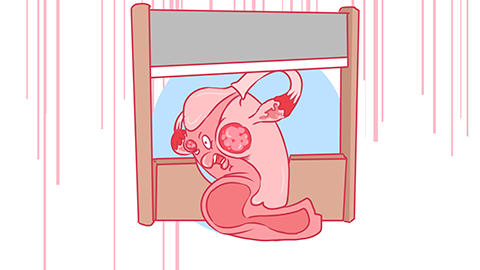What are the effects on the body after a hysterectomy?
A hysterectomy can have multiple impacts on a woman's physical and physiological functions, mainly including the cessation of menstruation, changes in ovarian function, alterations in the urinary system, changes in sexual life, and psychological and emotional fluctuations. A detailed analysis is as follows:

1. Cessation of menstruation: After a hysterectomy, women will no longer experience menstruation. This is because menstruation depends on the periodic shedding and bleeding of the endometrium, which is removed during the hysterectomy, thus naturally stopping menstrual cycles.
2. Changes in ovarian function: Although a hysterectomy does not directly affect the ovaries, the surgery may impact the blood supply to the ovaries, potentially leading to partial or complete loss of ovarian function. This may cause women to enter menopause prematurely, experiencing symptoms such as hot flashes, night sweats, and insomnia.
3. Alterations in the urinary system: The uterus is adjacent to the bladder and urethra. After a hysterectomy, the supporting structures of the bladder and urethra may change, leading some women to develop problems such as frequent urination, urgency, or urinary incontinence. Stress urinary incontinence is particularly common, with involuntary leakage occurring during actions such as coughing, laughing loudly, or sneezing.
4. Changes in sexual life: Some women may experience decreased libido or pain during intercourse after a hysterectomy. This is primarily due to changes in hormone levels and psychological factors. Additionally, women's sexual experiences may change after a hysterectomy, requiring both partners to adjust and adapt together.
5. Psychological and emotional fluctuations: A hysterectomy represents a significant physiological and psychological event for women, and some may experience anxiety, depression, or other emotional changes. These psychological changes may be related to a woman's sense of self-identity, loss of fertility, and concerns about the surgery itself.
It is recommended that women maintain healthy lifestyle habits after a hysterectomy, including a balanced diet and appropriate exercise, to enhance physical condition and immunity. Additionally, regular gynecological checkups should be conducted to monitor ovarian function and urinary system changes. Emotional and psychological issues can be alleviated through communication with family and friends or by seeking psychological counseling.




